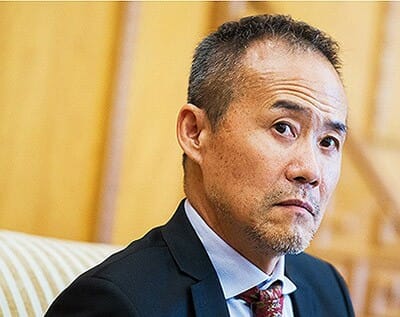
High rates of return are nice, but does China’s warehouse sector offer the kind of scale needed to move Vanke’s P&L?
China Vanke, which made its name as the country’s biggest builder of mid-market homes, is continuing continued to diversify its business by opening its first two warehouse projects.
The two projects, in Guiyang and Wuhan total more than 175,000 square metres, and Vanke last week announced its intentions to make logistics real estate a “major focus.”
Last year Vanke said that it was in discussions with private equity giant Blackstone to pursue warehouse development projects, as the two companies look for opportunities to move into the lucrative turf previously dominated by industrial specialists such as Global Logistic Properties, Goodman and The Redwood Group.
Building Big and Taking on Partners
In Guiyang, the capital of southwestern China’s Guizhou province, Vanke is building a 101,000 square metre (GFA) distribution centre in the Longli Express Logistic Park. In a statement to the Hong Kong stock exchange, the company said that it paid RMB 15 million for the site and intends to retain a 50 percent stake in the project, without specifying potential investment partners.
In Wuhan, Vanke is developing its Yangluo logistics project in the city’s Xinzhou district, which it expects will yield 76,000 square metres of warehouse space, in terms of GFA. The developer paid RMB 60 million for the Wuhan site, and now holds a 100 percent stake in the venture.
For both sites, Vanke advised investors that its shareholding in the project companies could change as it left open the door for third parties to cooperate in financing the deals.
Will Blackstone Join in Guiyang?
Vanke’s apparent interest in partners could be a confirmation of the company’s interest in cooperating with Blackstone on logistics projects, after Vanke executives announced last year that the two firms were jointly exploring warehouse opportunities in China.
Shortly after Vanke’s 2014 announcement, Blackstone also indicated an interest in building distribution centres on the mainland. During a trip to Beijing, Stephen Schwarzman, the private equity firm’s chairman, told the media that, “Industrial warehouses in China are very interesting, and are set to benefit as Internet and retail sales increase.”
Since that time, Blackstone has been involved in backing other logistics real estate ventures in China, apparently hoping to repeat the success that Warburg Pincus had in co-founding warehouse developer e-Shang in Shanghai.
30 Percent Returns Making Warehouses Look Sexy

Goodman’s Philip Pearce says that the best returns may already be in the past.
The interest among private equities firms and residential developers in building warehouses on the mainland is driven by the strong investment returns – at times 30 percent or more according to some developers – that logistics projects have returned on the mainland over the last few years.
However, some industry players are already saying that investment returns are tapering off, thanks in part to rising land prices driven by the rush of new money into the market.
“Logistics is the flavor of the month at the moment so there are a lot of people coming into the sector,” Philip Pearce, the head of Greater China for Australian industrial developer Goodman told Bloomberg earlier this month.
And for Goodman, while the market is still good, the profit peak may already be in the past.
“It’s fair to say we were enjoying abnormally high returns,” Pearce said in the interview, indicating that some projects generated yields of 30 percent.
Industry Insiders Remain Confident
While the fattest times may be in the past, prospects for warehouse development on the mainland still look attractive to some of the experienced players.
Last week Mingtiandi met with a Singapore-based logistics real estate fund, who indicated that they still see strong returns on the mainland.
“While there are some projects experiencing leasing challenges, most of these were built in difficult locations by developers who may be new to the warehouse market,” a senior executive with the fund told Mingtiandi.
“International grade projects in strategic locations are still being fully leased out before completion in most markets, and we are seeing no fall-off in demand for space,” he added.
As if to confirm the fund’s optimism, Japan-based industrial real estate fund Unified Industrial just decided to enter the Chinese market, hiring industry veteran Jeremy Chapman to run its team in eastern China.
For most developers in the market, the unwillingness of local governments to sell land for warehouse construction – which is seen as a low value-add activity for the community – remains the major challenge.
Whether industrial newcomers such as Vanke will succeed in the warehouse market, or be looking to exit the next time that housing sales recover, remains to be seen.
Leave a Reply